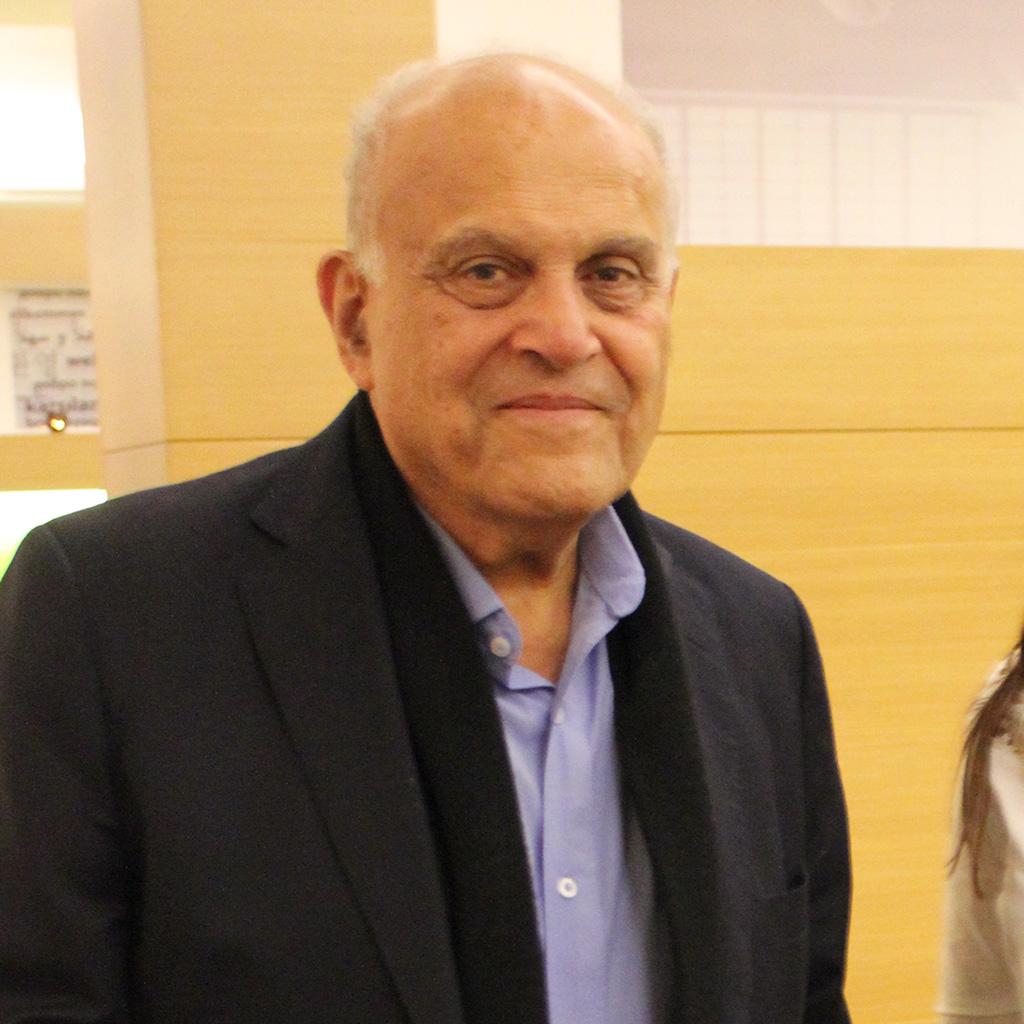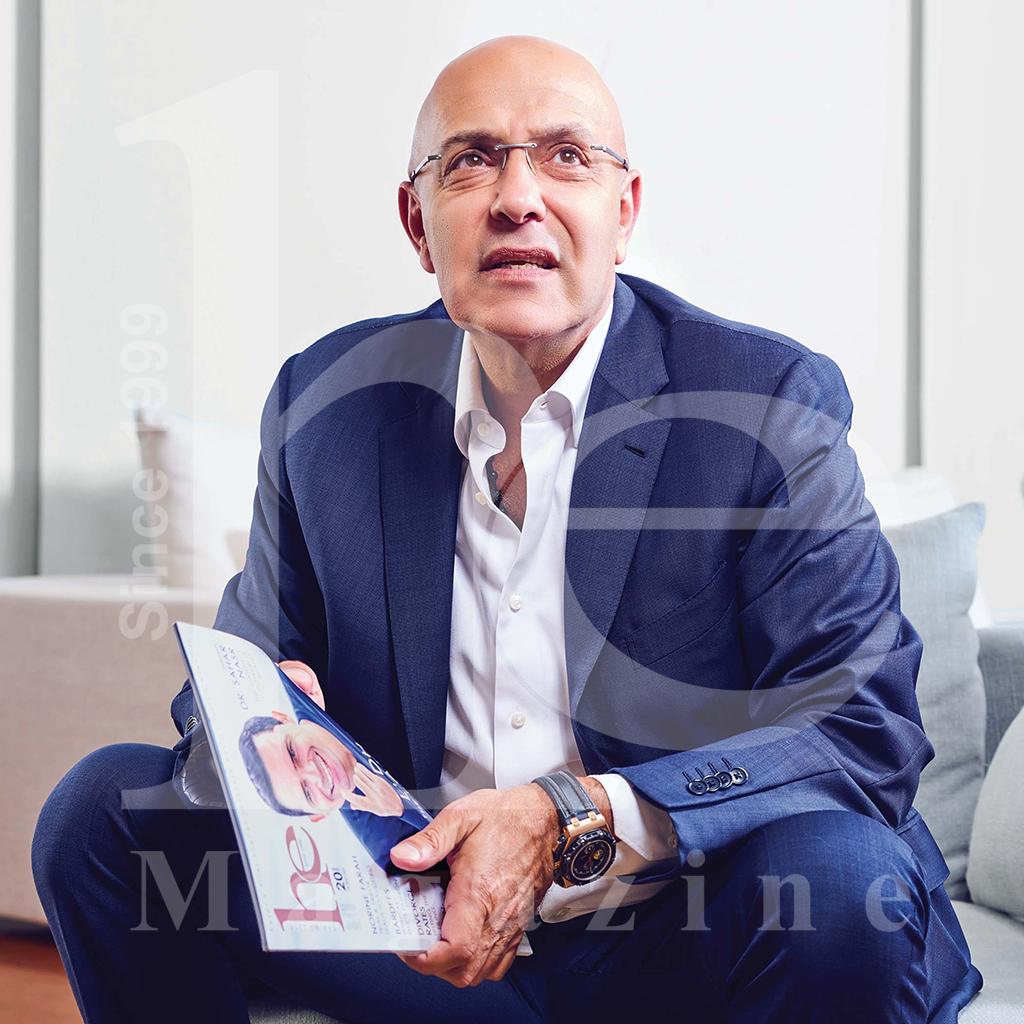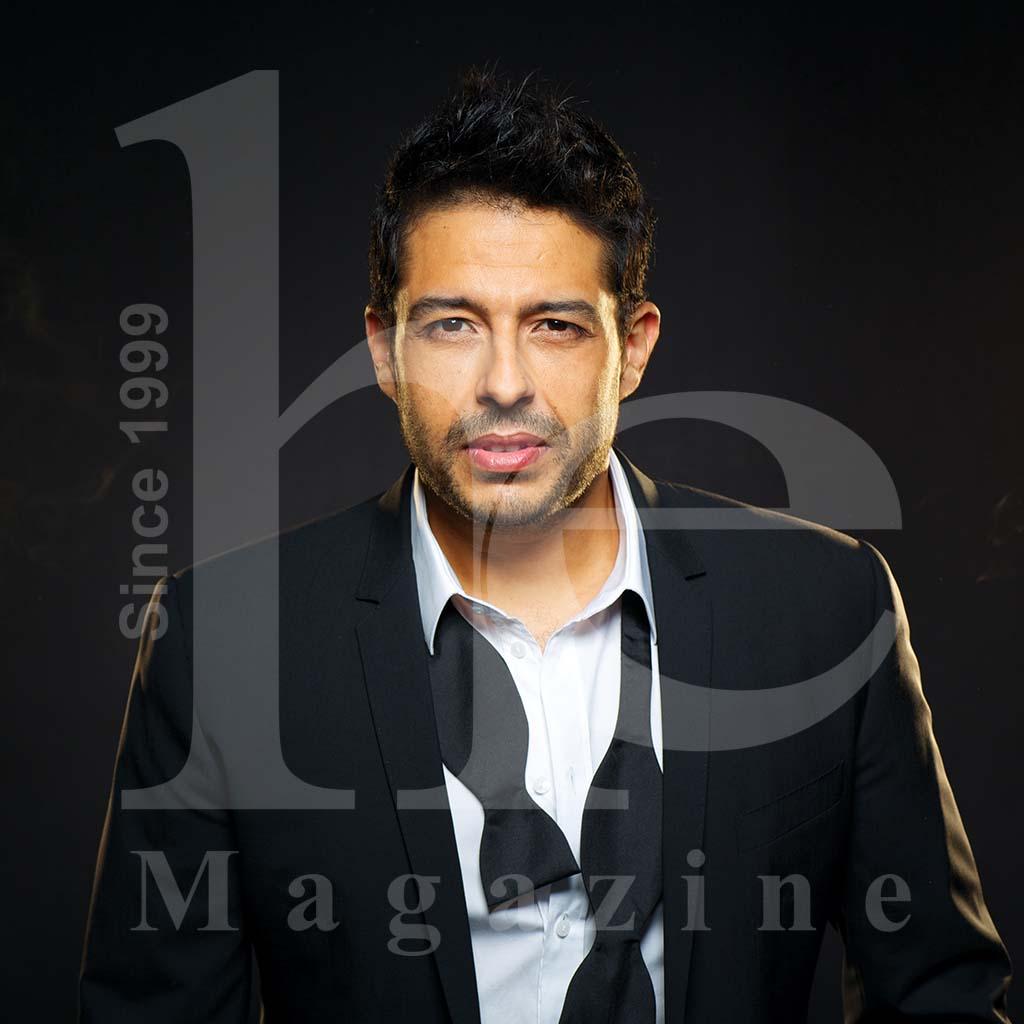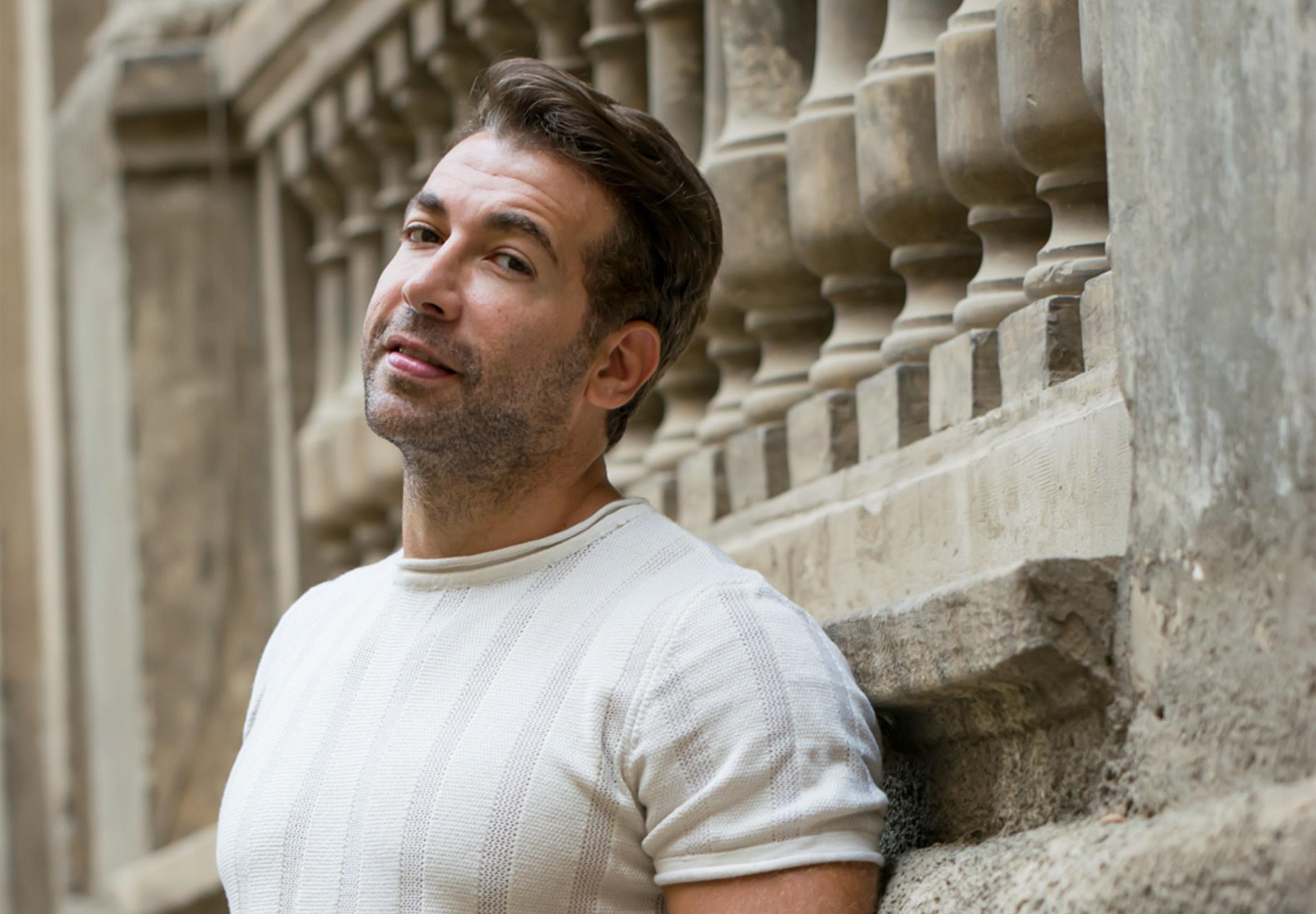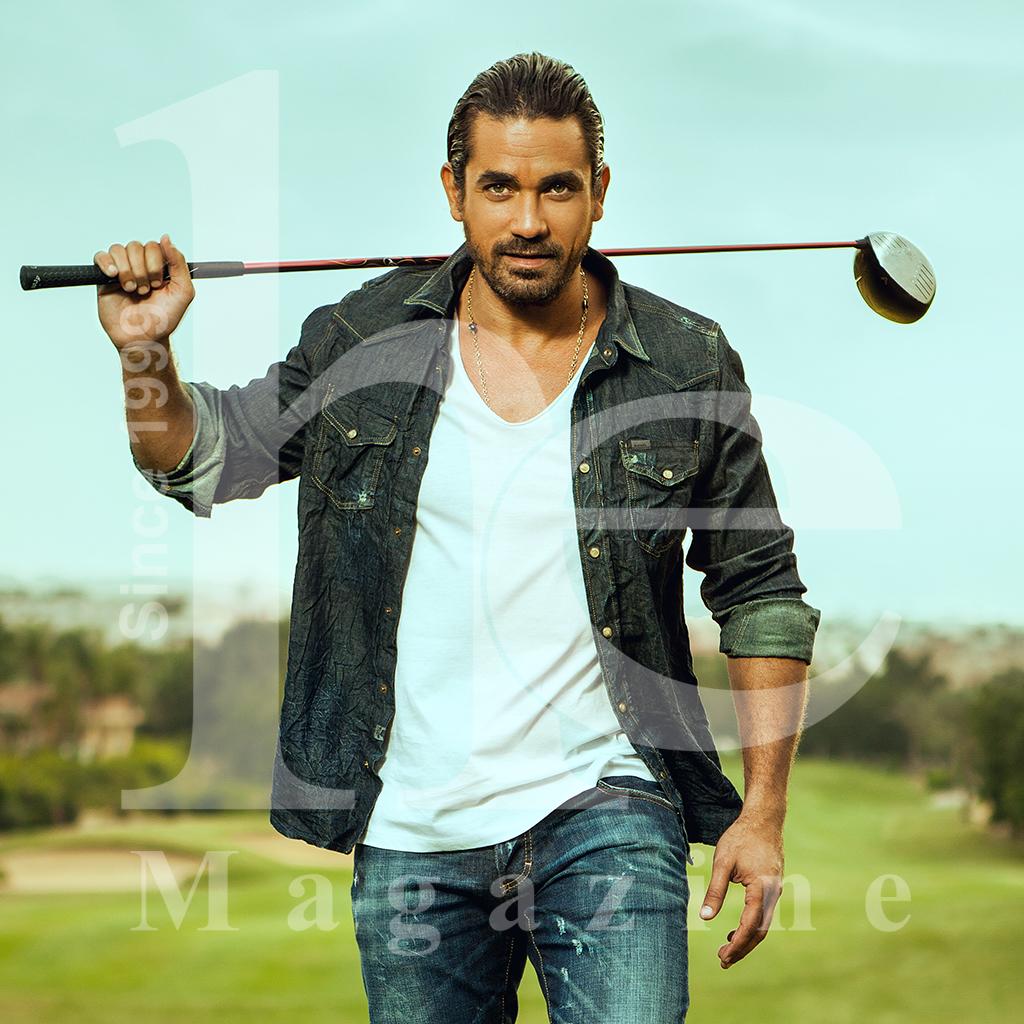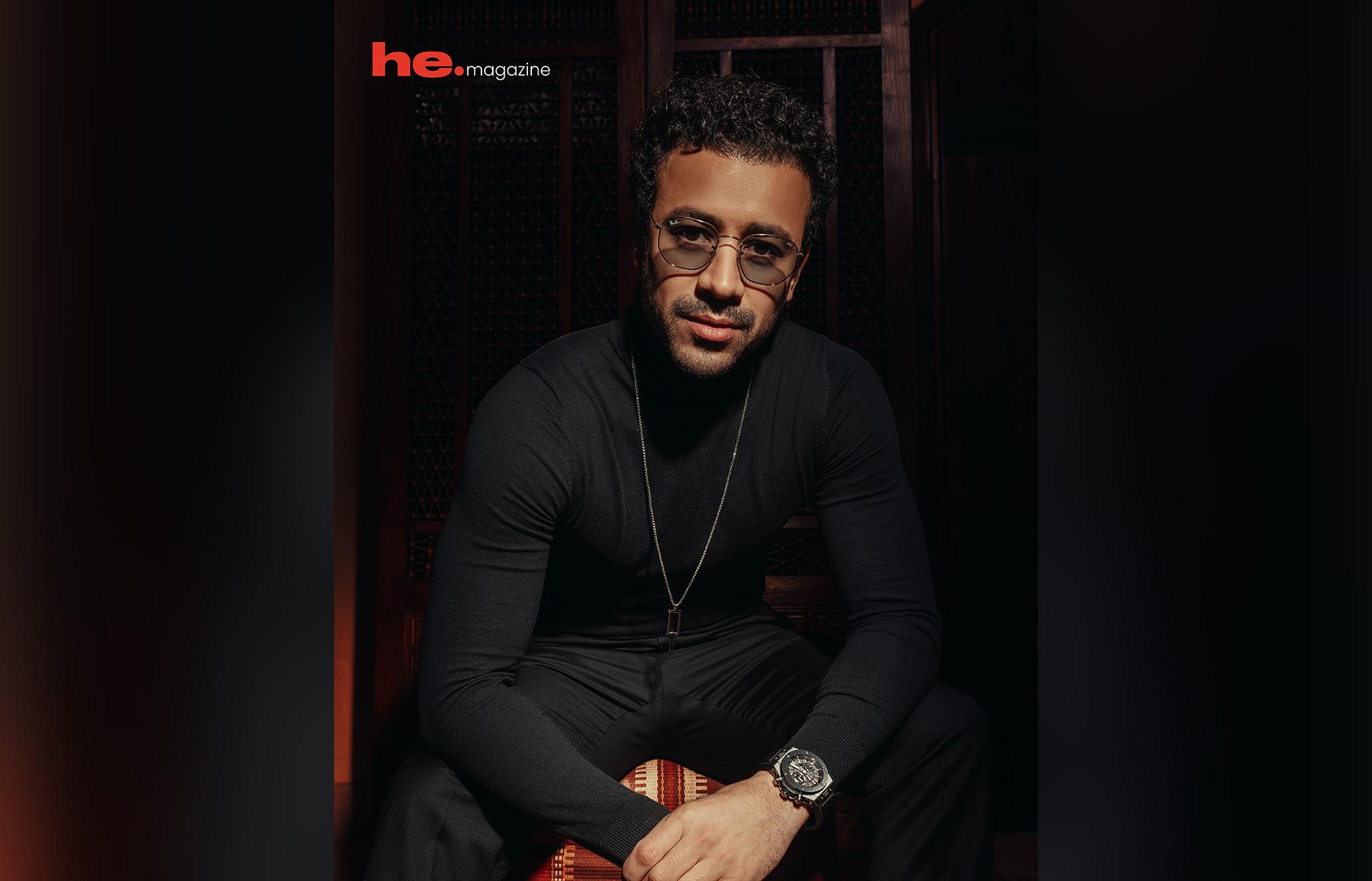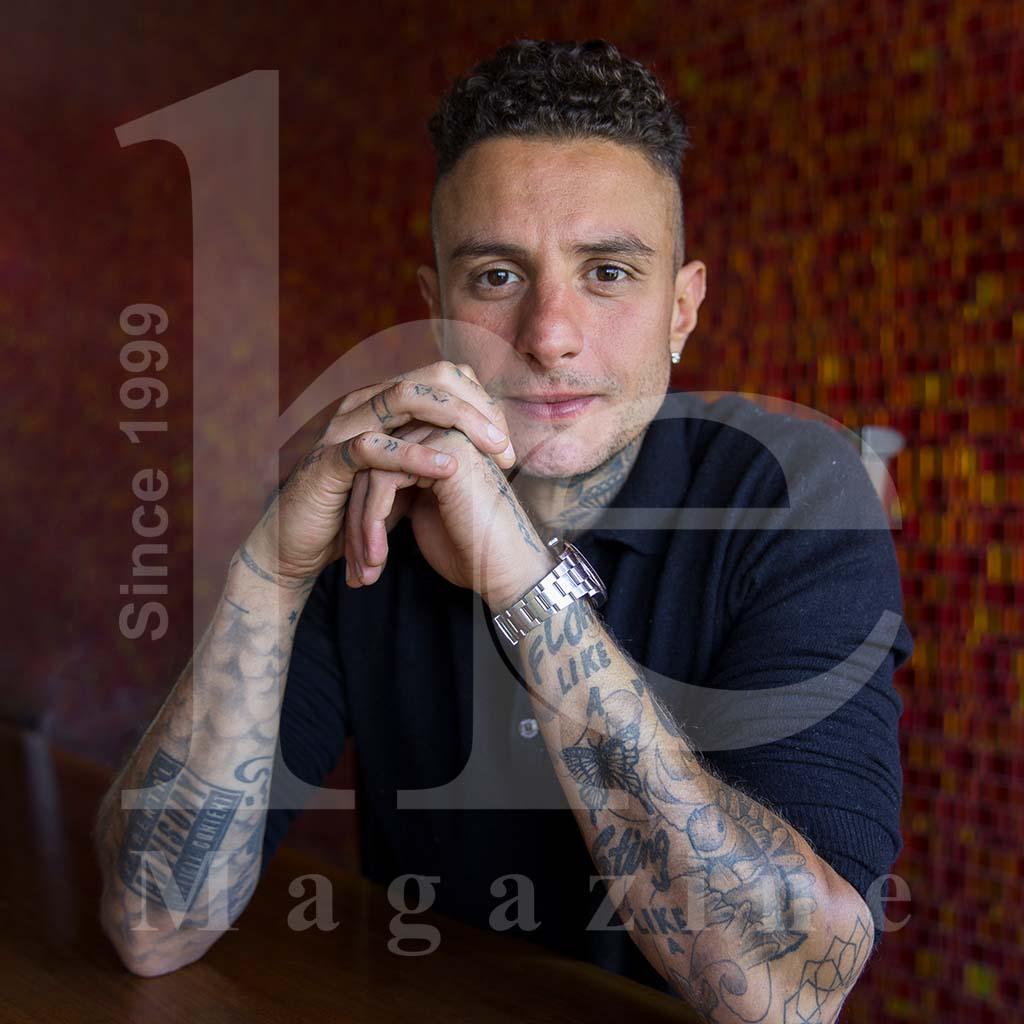
Written by: Jehan Harney
Date: 2017-09-01
Tattooed A-List Actor Ahmad Al-Fishawy on Using Art To ‘Build Peace’, ‘Oneness’
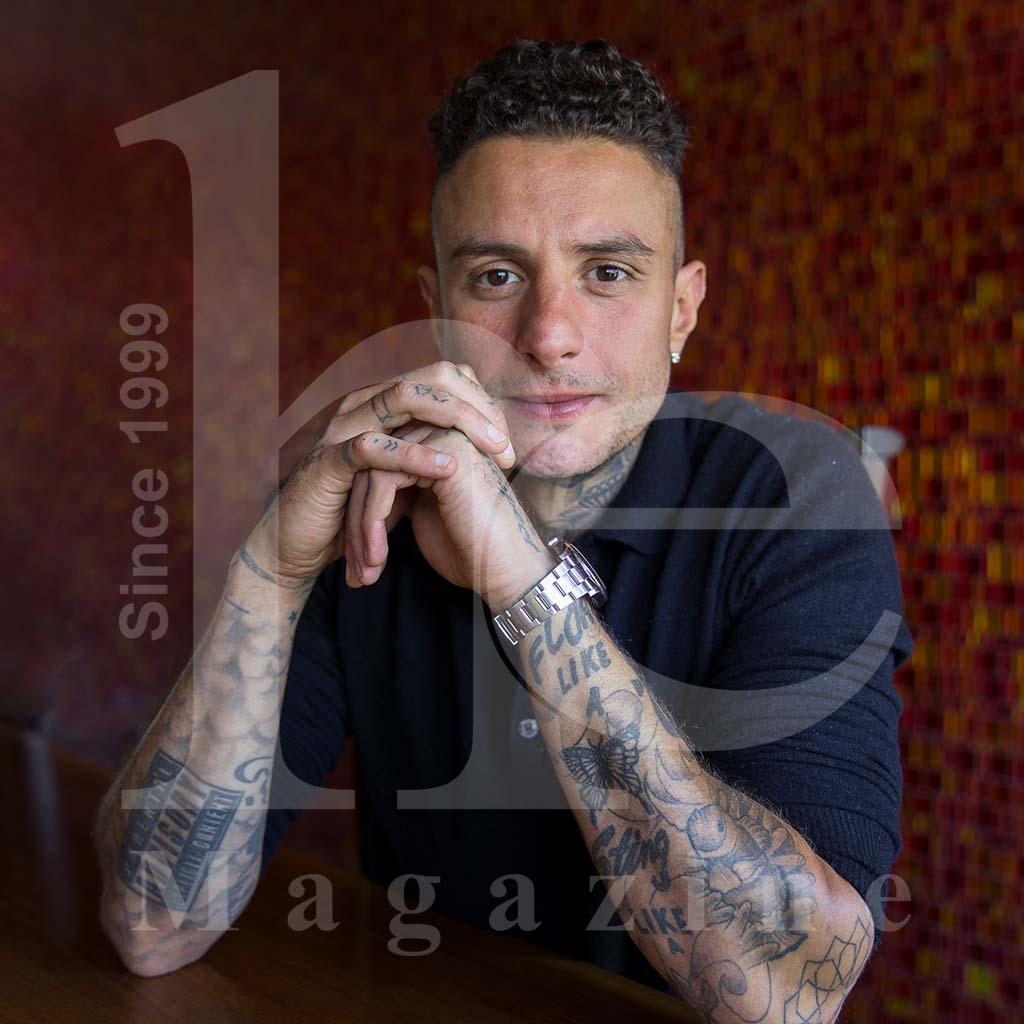
On a Sunday evening at a Korean restaurant in Zamalek, 37-year-old Ahmad Al-Fishawy enters dressed in a white graphic t-shirt that shows his deep tan and distressed jeans. He greets me with a warm hug instead of a handshake, and he quickly orders his special: Korean sushi, beef in black bean sauce, and glass noodles with veggies along with a South African white wine.
Ironically, talking about his skin tan as a first topic immediately led us into a deeper conversation about his life. “I am a fish. I am a Scorpio, so I love water,” he laughs. “I am actually an advanced diver. That’s what I usually do.” Al-Fishawy isn’t exaggerating about his love for water. As he reaches for a piece of sushi, I notice a drawing of a fish and a starfish tattooed on his left hand.
He just got back from Dahab after a diving excursion at the captivating Blue Hole, a diving attraction a few kilometers north of Dahab. Some experienced divers from around the world are so mesmerized by its beauty that they risk going into its deep horizontal tunnel—26m long and 56m below the water. Some do not come back; this tunnel has claimed nearly 130 people over the past 15 years.
The beauty of that spot, though, allures Al-Fishawy. In fact, four years ago, he visited Dahab on what was supposed to be a six-day trip, but, he says, “I ended up staying six months instead.”He continues, “I loved the city, the beach, and the simple lifestyle.” He stayed longer too because he decided to learn diving. “I am scared shitless of snorkeling,”he laughs, “so I went for free diving instead.” With snorkeling, he explains, “I felt I was stuck and couldn’t maneuver much on the surface of the water in case of any danger;[however], diving made it easier for me to face my fears. Like the fish, I could go anywhere in the water. I am no longer stuck near the water surface anymore.”
Al-Fishawy takes a bite of his Korean beef in black bean sauce and reflects for a moment. “I realize as I get older, I become more spontaneous and adventurous.” His adventurous side, though, is complemented with charming humor and a hint of responsibility. This can be detected easily on his right arm where the statement “Don’t Drink and Dive” is brightly tattooed.
Interestingly, his passion for tattoos started at 28. “I was infatuated from an early age with the actress Shirine Reda,” he says, “so I tattooed her first initial, S, atop my right ankle.”From that point on, his passion for everything in life became manifested in tattoos etched literally all over his body, asides from his tanned face.
The funky actor grew up in a family of famed stars—his parents are Farouk Al-Fishawy and Somaya El-Alfy. “I was grabbed by the magic of filmmaking,”he says, “which helps to magically create a world that can actually change people’s thoughts, feelings, and lives for the better.” The passionate son studied acting and directing at the Higher Institute of Theatrical Arts.
His tired eyes now seem to open wider as he reminisces about his film experiences. At 20, he acted in Wajh Al-Qamar opposite the famed Faten Hamama, and the rest is history. As an A-list entertainment name in the movie and TV industry today, Al-Fishawy has acted in 14 feature films, two shorts, and six TV series.
“The film 45 Daysis the closest to my heart,” he remarks. “I enjoy the challenge of playing roles that are far from being me.” The film chronicles the dramatic story about a “crime within a family that unleashes dark secrets ultimately shattering the life of a young man who had a lot going for him”.
Al-Fishawy is also passionate about directing. He directed one short film, The Chase, and is currently directing another, Virtue in a Bottleabout a “girl who loses her virginity before marriage but is saved by a medical examiner”.

Unlike other actors who care about the control of their image in public and in the media, Al-Fishawy basically says he “couldn’t care less”. And, he shows it all on his skin.
Etched on his right arm, I read the tattooed statement “Parental Advisory - Explicit Content”. “I have vulgar side,” he laughs without much elaboration except for saying, “I am who I am. I am comfortable with myself. I don’t hide anything, and I take it as it is.”He believes life would be much easier if people, particularly Egyptian youths, “are also more accepting of themselves and of each other without judgment.” “That builds love,” he says. “More than money or any material things in life,” he continues, “love is the answer to the problems of youth in Egypt today.”
“I am not a believer in the Arab revolutions,” he says. “If we seek change,” he explains, “we should start with ourselves and then with things around us in our own lives, homes, streets, and neighborhoods.” He points out, “We don’t need to raise signs and banners to do that. Instead, loving ourselves, as well as others and our community, can help us to create positive social change.”
As the toned actor takes a sip of his white wine, I notice an Islamic star symbol on his right arm. He describes it as a “symbol of unity”.“Everybody is the same and we are all one,” he softly says. This is about “humanity and peace”.
For many years, Al-Fishawy was on a quest to find his inner peace and his own identity—ajourney that took him through different detours in life that sometimes stood at odds with his family and society.
His first stop at 21 was the Muslim Brotherhood. The artist with the sharp punk hair cut had joined the group for two years. “I had a beard, and I wasn’t shaking hands with women,” he laughs. He wholeheartedly believed in the “Muslim Brotherhood message and in the goodness of the members’ hearts”, he says.
That led to his progression towards the next path: Salafism. “For one year, I used to wear the short galabeya and had a much longer beard.” He continues, “I used to live in the mosque for days at a time.”As if all that was not enough to gratify Al-Fishawy’s spiritual quest, the young actor dove even deeper into the ocean of Islamic fanaticism by joining the hardcore Jama’at Al-Tabligh Wal-Da’wah for another two years.
His famous parents couldn’t stop him. “They urged me not to follow a fanatical path that forbids much about life itself.” “We should remain open to differences,” they advised him, “and explore other sides and perspectives with tolerance and respect.” Eventually, he says, “I did.” And, his journey of exploring more about life resumed and became boldly manifested in the many tattooed symbols all over his body. Each symbol has a story and a deep meaning for him.
In the middle of our conversation, his mother, Somaya El-Alfy, calls to check on him. He has to catch a flight to Canada tomorrow. He will attend the world premiere of his newly released film, Sheikh Jackson, at the Toronto International Film Festival. The film is directed by Amr Salama and stars Al-Fishawy, as well as Ahmed Malek, Maged El-Kedwany, and Amina Khalil.
Ironically, Al-Fishawy plays the role of an Islamic cleric who was dubbed as “Jackson” by his friends during his schooldays. The story climaxes in 2009, when he hears news about the death of his idol, Michael Jackson. The event sparks a series of existential questions within the sheikh. “He goes through identify crisis. He experiences problems with his faith and belief in God,” Al-Fishawy says. “In a very touching, sentimental, and entertaining way, the sheikh starts to ask himself if art is haram or halal, and if dancing is haram or halal.”
Al-Fishawy takes another piece of sushi along with a sip of wine and excitedly says, “When I read the script, I was shocked the sheikh’s character was very much like me!”He fell in love with the story because it essentially addresses a subject Al-Fishawy has spent his entire life seeking: finding oneself.The film explores this theme in a “social dramatic way with some comic relief that for sure will entertain audiences,” he adds. The film’s message of “peace, tolerance, and acceptance,” he stresses, “is important for youth in Egypt and around the world.”

Obviously, Sheikh Jackson is timely in the West, where Muslims since 9-11 have been negatively stereotyped in Western media and targeted in society. Most recently, US President Donald Trump issued an executive order barring people from seven majority-Muslim countries—Iran, Iraq, Syria, Yemen, Somalia, Sudan, and Libya—from entering the US for 90 days. This act even stopped refugee resettlement for 120 days and indefinitely banned Syrian refugees amid the endless conflict in Syria.
Al-Fishawy touches the Islamic unity symbol tattooed on his arm as he stares at some Korean decorations on the restaurant wall. “The humor and humanity of the sheikh’s character in the filmwill certainly touch people’s hearts,” he continues. “Ultimately, this will create more connection and understanding between the East and the West beyond the obvious differences.”
Al-Fishawy is also “very proud this film is giving Egyptian cinema more global recognition” at a time when this cinema now suffers from the “lack of originality in scripts” and “poor attention to pre-production details”, which he says could prolong the duration and costs of production, thus, making a film look “unprofessional in the end”. The young actor applauds “up-and-coming directors”, such as Karim El-Shenawy, Amr Salama, and Mohamed Diab, who have a “strong potential for making internationally recognized films that can revive the golden age of Egyptian cinema”.
Currently, Al-Fishawy is working with Karim El-Shenawy on Bullet, which is written by Haitham Dabbour and will star actress and singer Ruby and Mohamed Mamdouh. He describes the film as a “dark mystery thriller about a forensic pathologist who tries to solve a mystery crime with a great twist in the end”.
For now, the divorced actor enjoys being a father to Leena, 13. He says he fell in love “only three times” in his life, but remains open to finding true love. As long as she is “tender and kind inside, it can work”, he says, noting that he still believes in “love at first sight as happened with my first wife”.
Towards the end of our interview, Al-Fishawy’s mother calls again. She reminds him that he needs to rest well before the long trip to Toronto the next day. “She is my best friend,” Al-Fishawy softly says with a gentle smile. So, he finally puts down his wine glass. “I always sleep at 9:30 pm,” he explains. We hug goodbye, and he disappears into the hustle and bustle going on at the corner of the street near his home.
After tonight, Al-Fishawy certainly has a lot to look forward to. Not only will Sheikh Jackson have its world premiere at one of the top international film festivals but the film has also been nominated to represent Egypt in the foreign films category at the next Oscars in 2018. The official nominations will be announced on 23 January 2018 and the 90th Academy Awards ceremony will take place on 4 March 2018.
More than anything, the A-list actor is proud that the various detours he took in his life, which sometimes stood at odds with society and with his own family, have actually shaped who he is today. He describes himself in one word: “godly”. He is “passionately glad to use art in a way that connects people together and builds peace and oneness between them”—just like the Islamic unity star tattoo etched on his arm.
